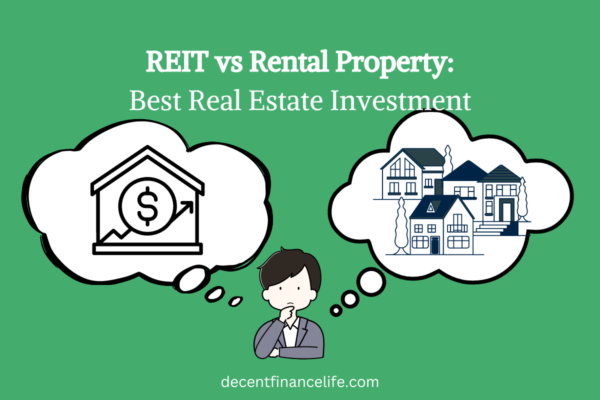In today’s increasingly digital world, the concept of real estate has expanded beyond physical properties to include a vast online landscape. But is digital real estate legit? Is it really a good investment opportunity? In this blog post, I will explore the ins and outs of digital real estate and provide you with all the information you need to make an informed decision.
If you are asking yourself is digital real estate legit and want to get started with digital real estate, I will provide you with valuable insights. I will discuss the skills and knowledge required to thrive in this industry, the various ways to invest in digital properties, and best practices for managing and growing digital assets.
So, if you’ve ever wondered is digital real estate legit and if it provides good investment opportunity, you’ve come to the right place. Read through this comprehensive guide, where we will dive deep into the world of digital real estate and equip you with the knowledge to navigate this exciting and evolving market.

Understanding Digital Real Estate: An Introduction
Over the years, the internet has transformed into an expanding marketplace where individuals and businesses establish their presence. Digital real estate refers to virtual properties that hold value and have the potential to generate income. These properties can come in various forms, including websites, social media accounts, and domain names. Because digitalization is quite new and people are now very in and out with it, many people wonder whether anything in there is legit, and they also ask whether digital real estate is legit.
Because there are various forms of digital real estate and opportunities, digital real estate has become a profitable investment opportunity. For example, websites are considered the cornerstone of digital real estate. Like physical properties, websites can be bought, sold, and developed to generate income.
On the other hand, social media accounts have gained prominence as valuable digital assets. Influencers and businesses leverage their social media presence to engage with their audience and monetize their followers.
But what about profitability? Is digital real estate a lucrative investment opportunity? The answer is a resounding yes. Digital real estate has the potential to generate substantial income through various channels. Whether it’s through advertising, affiliate marketing, or selling products and services, digital properties can provide a steady stream of revenue.
The Rise of Digital Real Estate
With the rapid growth of the internet, the virtual landscape has become a thriving marketplace where individuals and businesses establish their presence. Because of this growth, there are many scam and legit digital real estate opportunities in here that you need to be careul of. Digital real estate refers to virtual properties that hold value and have the potential to generate income. This can include websites, social media accounts, domain names, and other digital assets. If you make your research well and get started with legit digital real estate platforms, you should be good.
The Value of Digital Properties
Digital properties are valuable assets due to their ability to reach a massive online audience. Websites, for example, allow businesses and individuals to showcase their products, services, or content to a global audience. Social media accounts provide a platform for engagement, brand building, and direct communication with followers. Domain names are a part of establishing an online identity and driving organic traffic to websites, and it is an important one.
The Growing Importance of Online Presence
In this growing digital age, everything is online, and a strong online presence is essential for everyone, whether individuals or businesses. Digital real estate provides opportunities to connect with target audiences, build brand recognition, and drive revenue. As more people turn to the internet for information, products, and services, the value of digital properties continues to escalate.
The Potential of Digital Real Estate Investments
Investing in digital real estate has the potential for significant returns on investment. Digital properties can generate income through various monetization strategies, such as advertising, affiliate marketing, e-commerce sales, sponsored content, and more. The scalability and global reach of digital assets make them attractive investment opportunities for entrepreneurs, investors, and individuals looking to diversify their portfolios.
The Impact of Technology Advancements
Technological advancements always change and shape the digital real estate landscape and have to be followed extremely closely. Simple advancement could derail your SEO effects on your website if you don’t take care of it.
Innovations in website development, search engine optimization (SEO), social media marketing, and e-commerce platforms have opened up new ways for growth and profitability in the digital realm. Staying up to date with the latest trends and technologies is essential for success in this dynamic field.

What Constitutes Digital Real Estate?
Digital real estate encompasses a range of virtual properties that hold value and have the potential to generate income. In this section, we will explore the different components that constitute digital real estate and provide a comprehensive understanding of each.
Websites such as Digital Properties
Websites are the cornerstone of digital real estate. They serve as virtual storefronts or platforms like physical stores where anyone can use them as a showcase for their products, services, or content to a global audience. Websites can range from simple personal blogs to complex e-commerce sites and everything in between.
Key elements of digital properties
- Design and User Experience (UX): A well-designed website is crucial for attracting and retaining visitors. Elements such as layout, navigation, responsiveness, and visual appeal contribute to the overall user experience.
- Content Creation and Management: High-quality content is vital for engaging and attracting visitors to a website. Content includes articles, blog posts, videos, images, and other forms of media that provide value and relevance to the target audience. Effective content management ensures regular updates, optimization for search engines, and organized information architecture.
- Monetization Strategies: Websites can generate income through various monetization strategies, such as advertising through networks like Google AdSense or selling ad space directly to advertisers. Affiliate marketing to promote products or services and earn a commission for each referral or sale. E-commerce to sell products or services directly on the website. Offering membership/subscriptions for exclusive content or services to paid members or subscribers.
- Social Media Accounts as Digital Assets: Social media accounts have become valuable digital assets in the realm of digital real estate. Platforms like Facebook, Instagram, Twitter, LinkedIn, and YouTube provide opportunities for individuals and businesses to establish an online presence, engage with their audience, and drive traffic to their websites.
- Domain Names & SEO: Domain names and search engine optimization (SEO) play a crucial role in the world of digital real estate. While not tangible properties themselves, they are essential components that contribute to the visibility and success of websites.
By understanding the various components that constitute digital real estate, including websites, social media accounts, and the importance of domain names and SEO, you can begin to grasp the full potential and opportunities available in this expanding market. In the following sections, we will delve deeper into the profitability, risks, and strategies involved in digital real estate investments.

The Profitability of Digital Real Estate
Digital real estate presents significant opportunities for generating income and achieving profitability. In this section, we will explore the various ways in which digital properties can generate revenue and delve into the potential return on investment (ROI) in the realm of digital real estate.
How Digital Real Estate Generates Income
There are multiple avenues through which digital properties can generate income. Understanding these income streams is essential for maximizing the profitability of your digital real estate investments. Here are some common methods:
Advertising
One of the most prevalent ways to monetize digital properties is through advertising. Website owners can display ads through ad networks like Google AdSense or work directly with advertisers for sponsored content or banner ads. Social media accounts with a large following may also collaborate with brands for sponsored posts or product endorsements.
Affiliate Marketing
This method is promoting products or services on your digital properties and earning a commission for each referral or sale made through your affiliate link. This can be done through blog posts, social media posts, or dedicated product reviews.
E-commerce Sales
If you own an e-commerce website, you can directly sell products or services to customers. By leveraging your digital property as a storefront, you can reach a global audience and drive sales.
Sponsored Content
Influencers or website owners with a substantial following may collaborate with brands for sponsored content. This can include writing sponsored blog posts, creating sponsored videos, or promoting products through social media posts.
Membership/Subscriptions
By offering exclusive content, services, or community access, you can monetize your digital properties through membership or subscription models. Users pay a recurring fee to access premium features or exclusive content.
Potential ROI in Digital Real Estate
The return on investment (ROI) potential in digital real estate can be significant, but it varies depending on several factors. Here are some factors that can influence the ROI in digital real estate:
Niche Selection and Demand
Choosing the right niche or industry for your digital property is crucial. Niches with high demand and profitability potential tend to provide better ROI. Conducting thorough market research and identifying untapped opportunities can increase the chances of a higher ROI.
Quality of Content and User Experience
High-quality content that resonates with your target audience, combined with a seamless user experience, can drive more traffic, engagement, and conversions. Investing in creating valuable content and optimizing user experience can improve the ROI of your digital property.
Monetization Strategies and Effectiveness
The effectiveness of your chosen monetization strategies can directly impact your ROI. Implementing a mix of strategies that align with your target audience and niche can maximize revenue generation.
Marketing and Promotion Efforts
Effective marketing and promotion play a crucial role in driving traffic and attracting potential customers to your digital properties. Investing in marketing efforts, including SEO, social media marketing, and content promotion, can contribute to a higher ROI.
Market Conditions and Industry Trends
The digital real estate market is dynamic and influenced by market conditions and industry trends. Staying updated on these market conditions and adapting your strategies accordingly can impact the overall ROI of your investments.

Risks and Challenges in Digital Real Estate
While digital real estate offers promising opportunities, it is important to be aware of the risks and challenges that come with it. In this section, we will explore some of the potential risks and challenges associated with digital real estate investments, helping you make informed decisions and mitigate potential pitfalls.
Fluctuating Market Conditions
The digital real estate market is influenced by ever-changing market conditions. Factors such as technological advancements, shifts in consumer behavior, and economic fluctuations can impact the value and profitability of digital properties. It is crucial to stay informed about market trends and adapt your strategies accordingly to navigate through these fluctuations.
Technical Knowledge Requirement
Managing and growing digital properties often requires a certain level of technical knowledge. This includes understanding website development, SEO best practices, social media marketing, and other digital marketing techniques. Lack of technical expertise can pose challenges in effectively managing and optimizing your digital assets. However, you can overcome this challenge by acquiring the necessary skills or seeking assistance from professionals.
Potential Scams and Fraud
The digital landscape is not immune to scams and fraud. There are individuals and organizations that may engage in fraudulent activities, such as selling fake domain names, engaging in click fraud, or running deceptive advertising campaigns. It is essential to exercise caution and conduct due diligence when entering into transactions or partnerships in the digital real estate market.
Competition and Saturation
As digital real estate gains popularity, competition in various niches and industries also intensifies. It can become increasingly challenging to stand out among competitors and attract a significant audience. Additionally, certain niches may become saturated, making it more difficult to achieve substantial returns on investments. Thorough market research and differentiation strategies are essential to overcome these challenges.
Changing Algorithms and Policies
Digital platforms and search engines frequently update their algorithms and policies, which can significantly impact the visibility and reach of websites and social media accounts. Changes in algorithms can lead to fluctuations in search rankings, affecting organic traffic and revenue generation. Staying updated with platform policies and adapting your strategies accordingly is crucial to maintaining your digital properties’ performance.
Legal and Intellectual Property Issues
Digital real estate investments may also be subject to legal and intellectual property issues. This includes copyright infringement, trademark disputes, domain name disputes, and privacy concerns. Understanding and complying with relevant laws and regulations is essential to avoid legal complications and protect your investments.
By being aware of these risks and challenges, you can take proactive steps to mitigate potential pitfalls. Conducting thorough research, staying informed about market trends, and seeking professional advice when needed are essential to navigate the digital real estate landscape successfully. In the next section, we will delve into how to get started in digital real estate, including the skills required, investment strategies, and best practices for managing and growing your digital assets.
How to Get Started in Digital Real Estate
Getting started in digital real estate requires a combination of skills, knowledge, and strategic decision-making. In this section, we will explore the essential steps to enter the world of digital real estate, including the skills and knowledge required, investment strategies, and best practices for managing and growing your digital assets.
Skills and Knowledge You Need
To succeed in digital real estate, it is beneficial to possess the following skills and knowledge:
- Digital Marketing: Having a strong understanding of digital marketing principles, including SEO, social media marketing, content marketing, and analytics, is essential for effectively promoting and growing your digital properties.
- Website Development: Basic knowledge of website development, including HTML, CSS, and content management systems (CMS) like WordPress, can help you create and manage your websites independently.
- Content Creation: Proficiency in content creation, including writing, graphic design, photography, or video production, enables you to produce high-quality content for your digital properties.
- Analytics and Data Interpretation: Being able to analyze website and social media analytics, interpret data, and make data-driven decisions is crucial for optimizing your digital properties’ performance.
Investing in Digital Properties
When it comes to investing in digital real estate, here are some key strategies to consider:
- Market Research: Thorough market research is essential to identify profitable niches, assess competition levels, and understand audience demographics. This research will guide your investment decisions and help you choose the right digital properties to invest in.
- Assessing Value: Evaluate the value of digital properties based on factors such as traffic statistics, revenue potential, domain authority, social media following, and existing monetization strategies. This assessment will help you make informed investment decisions and negotiate fair prices.
- Due Diligence: Conduct thorough due diligence before acquiring digital properties. This includes verifying traffic sources, assessing the quality of content and backlinks, reviewing financial records, and ensuring legal compliance. Due diligence will minimize the risk of investing in fraudulent or low-quality digital properties.
- Diversification: Consider diversifying your digital real estate portfolio by investing in multiple properties across different niches or platforms. This spreads the risk and increases the potential for revenue generation from various sources.
- Regular Updates and Maintenance: Regularly update your digital properties with fresh content, ensure website security, and maintain a consistent brand image. Updating and maintaining your assets will keep them relevant, improve search engine rankings, and enhance user experience.
- Engagement and Community Building: Focus on engaging with your audience and building a community around your digital properties. Respond to comments, messages, and inquiries, and foster a sense of connection and loyalty with your audience.
- SEO Optimization: Implement effective SEO strategies to improve your website’s visibility in search engine results. This includes keyword research, on-page optimization, backlink building, and optimizing site speed.
- Monetization Strategies: Experiment with various monetization strategies that align with your digital properties and target audience. Test different ad placements, affiliate programs, e-commerce strategies, and sponsored content to maximize revenue generation.
Conclusion
In the end, it is clear that digital real estate is legit. The question whether digital real estate is legit or not actually originates from the distrust to the internet and scam platforms. If you know what you are doing and use only reputable platforms, the questions “is digital real estate legit” won’t be very crucial for you. There are many ways that you can start with and a lot of opportunities to actually make money. All you need to do is to learn about the details and see which one you are good at.
Once you know what to go for, you start to master how you can start it and grow it. For example, websites are the cornerstone of digital real estate, and if you like to write content, provide information, or represent your business, then you have to own a website.




